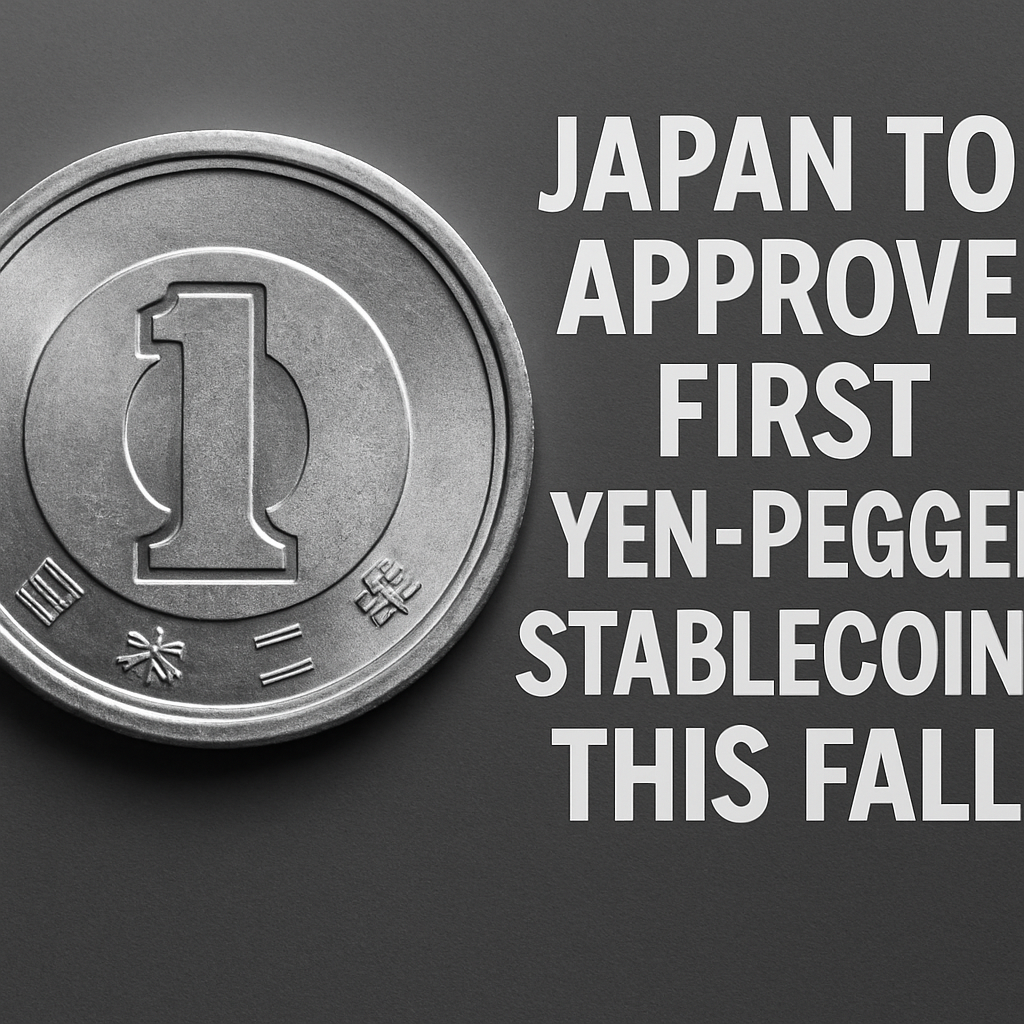Regulatory milestone for yen stablecoins
Japan’s Financial Services Agency (FSA) is preparing to authorize the issuance of yen-denominated stablecoins by year’s end, marking the first time the country will permit a domestic fiat-pegged digital currency. Tokyo-based fintech firm JPYC will register as a money transfer business to lead the rollout under the FSA’s regulatory framework. The stablecoin is designed to maintain a fixed value of 1 JPY per token, backed by bank deposits and Japanese government bonds.
Market context and preparation
The global stablecoin market has expanded to over $286 billion, dominated by U.S. dollar–pegged assets such as USDT and USDC. While dollar-based stablecoins have long operated in Japan, the forthcoming yen-denominated asset will be the first under domestic regulation. Applicants for stablecoin issuance will submit purchase requests via bank transfers, and tokens will be distributed directly to compliant digital wallets, aligning with existing money transfer protocols.
Impact on bond markets
Financial institutions and industry observers anticipate that yen stablecoins could alter domestic government bond demand. Leading issuers of dollar-pegged stablecoins have become substantial buyers of U.S. Treasurys, holding securities as collateral to support token circulation. A similar dynamic in Japan could bolster demand for JGBs if widespread adoption of yen stablecoins occurs, potentially influencing yields and liquidity in the domestic bond market.
Institutional considerations and risks
The FSA and market participants have highlighted potential privacy and data protection concerns, emphasizing the need to balance innovation with regulatory oversight. Embedded compliance features, such as automated know-your-customer and anti-money laundering checks, may be required within smart contracts or platform infrastructure to ensure regulatory alignment and mitigate illicit finance risks.
Future developments
Following FSA approval, JPYC and other issuers plan to collaborate with domestic and international exchanges to expand the stablecoin’s availability. Circle’s USDC has already launched in Japan under approval from SBI VC Trade, setting a precedent for foreign-issued assets. Issuers may pursue listings on major Japanese platforms including Binance Japan and bitFlyer to reach institutional and retail clients.
Broader implications
The approval of yen-backed stablecoins may accelerate digital yen research by the Bank of Japan and inform the central bank’s own central bank digital currency (CBDC) pilots. Market analysts expect that the regulatory clarity provided by the FSA will encourage further innovation in tokenized payment rails, smart contract–based settlement, and real-world asset integration in Japan’s blockchain ecosystem.
Conclusion
The FSA’s decision to regulate yen-pegged stablecoins represents a significant development for digital finance in Japan, potentially reshaping both crypto markets and traditional bond markets. As stablecoin issuers prepare for rollout, industry stakeholders will monitor adoption rates, collateral management practices, and regulatory developments to assess the long-term impact on financial markets and payment infrastructure in Japan.
.
Comments (0)